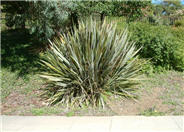
Common name:New Zealand Flax
Botanical name:Phormium tenax
New Zealand Flax is a large, bold plant with stiffly vertical, sword-like, green leaves that arise from its base. It should be grown under full sun for best color. Varieties will offer different growth habits and leaf color.
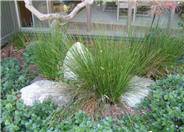
Common name:Spiny Rush
Botanical name:Juncus acutus
This native Rush grows naturally in moist alkaline soils especially in coastal salt marshes. As one of the larger native Rushes, growing to 3'-4' tall and 3'-4' wide, it can provide interest through form and structure in a natural garden setting. It is carefree-looking. The tips of the leaves are sharp so care should be taken when designing the landscape not to place this species close to walkways, etc. Tall grasses are highly combustible.
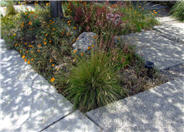
Common name:Mueller's Fescue
Botanical name:Festuca muelleri
This Central European native fescue has shiny, dark green foliage that is slightly bluish green. It is a cool season grass that grows up to 8 inches tall and equally wide. If massed together it can become a lawn alternative.
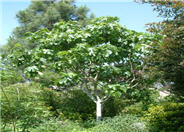
Common name:Fig Edible
Botanical name:Ficus carica
This small tree produces wonderful figs that are a brownish red color.
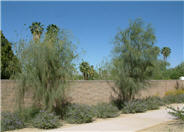
Common name:Shoestring Acacia, Dalby Myall
Botanical name:Acacia stenophylla
This plant is a fast growing, tough, open evergreen tree 15'-40' tall, with a wispy, picturesque habit. It has showy, creamy yellow flowers borne in small globular clusters against stems from late winter through spring. It tolerates heavy soils and innundation. It is very drought tolerant when established and hardy to at least 20'. It is somewhat Texas Root Rot prone but is tolerant and tough, good in groves and of Australian origin.
| Designer: | Outdoor Kitchen |
Photographer: GardenSoft |
Soils and Compost:
Incorporate compost 6" into your soil to retain water, reduce compaction, feed earthworms, and provide valuable nutrients to your plants.
Water Saving Tip:
Mulching around plants helps retain water and improves the soil.
Integrated Pest Management:
Develop healthy soil for plants that are vigorous and naturally pest-resistant.

